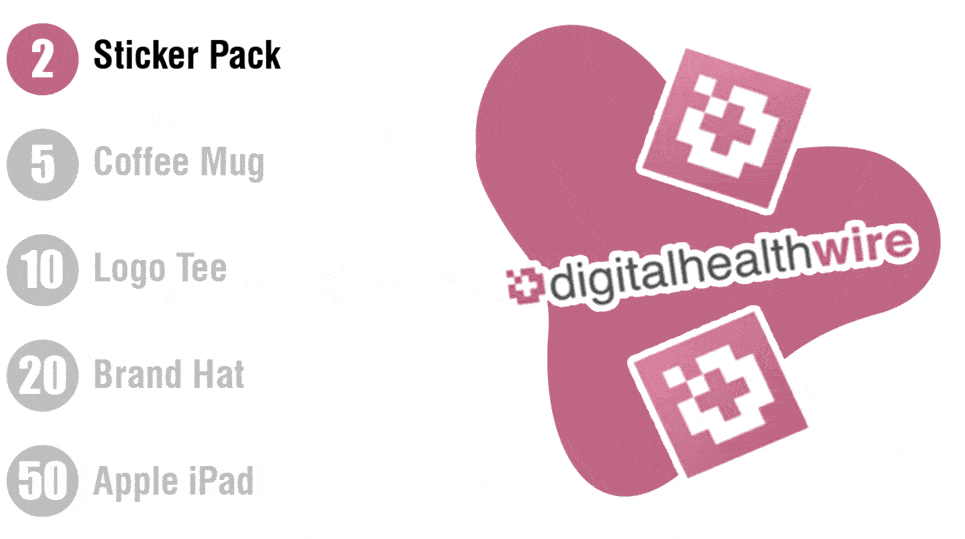|
Providers Double Down on Software | Babylon Divestiture
October 27, 2022
|
|
|

|
|
Together with
|

|
|
|
“I should be given the award for the worst time and worst method of taking a company public.”
|
|
Babylon CEO Ali Parsa in a refreshingly human interview with Sifted.
|
|

|
|
A new 2022 Healthcare Provider IT Report from Bain & Company and KLAS Research drew a lot of coverage this week with a headline takeaway that served as a nice break from recent bleak healthcare forecasts:
- Providers are doubling down on software investments, even in the face of macroeconomic turbulence.
The research includes plenty of interesting data that’s worth checking out if you have half an hour to absorb it all, but here are the highlights for the visual learners with 3 minutes to spare.
- Over 75% of providers expect to make new software investments next year, and one-third plan to invest more than usual (Figure 1). This signals a turning point in the provider IT market as many orgs who have stayed on the sidelines are now looking to retool software roadmaps for a “new normal.”
- Of those investing heavily, nearly 80% cite labor shortages, inflation concerns, or restructuring (M&A, change in leadership) as the top catalysts (Figure 2).
- Providers are particularly interested in revenue cycle management, security, and patient intake solutions as they look to address rising margin pressure and improve the productivity of limited staff (Figure 3).
The other main point that the report drives home is that providers are feeling increasingly overwhelmed by their expanding tech stacks and the proliferation of new vendors.
- Over half are struggling with the flood of offerings and 24% believe that their existing tech stack keeps them too busy to stay current on new solutions (Figure 4).
- As a result, providers are actively trying to streamline their bloated tech stacks, with 72% attempting to expand with existing vendors before considering new ones and 63% looking to cut back on third-party software solutions over the next year (Figure 5).
The Takeaway
The consensus among providers appears to be that falling behind on software investment isn’t the way to turn around struggling performance, and neither is overloading their staff with disjointed products. That seems like a telltale sign that we’re in for more consolidation, especially with the report concluding that software vendors should pursue bolt-on acquisitions and strategic partnerships to create sticky platform offerings in a crowded field.
|




|
|
How Medallion Helped Skintap Launch in 15 States
In order to launch and scale, Skintap had to build a network of dermatologists who could see patients across the US. Learn how Medallion helped Skintap’s providers get licensed in over 15 states in less than four months – without any headaches and well before their launch date.
|
|
Patient Engagement for a VP of Patient Experience
Nuance’s patient engagement guide for hospital execs gives a patient’s-eye view of the engagement experience and explores what the growing demand for convenient interactions means for the VP of Patient Experience.
|
|
- Babylon Divestiture: Babylon Health announced the full details on its plans to divest Meritage Medical Network, an 1,800-physician independent practice association based in California. The press release basically boiled down to Babylon needing to raise capital (a lot of it, quickly) as it cuts expenses and refocuses on profitability within its core business of transitioning established physician practices to tech-first VBC.
- Medically Tailored Meals: New research in JAMA found that payors could save $13.6B annually by covering medically tailored meals (MTM) for patients with diet-related diseases (diabetes, heart failure, cancer) and activity limitations. The study found that among 6.3M eligible Americans, the roll out of MTMs could prevent 1.6M hospitalizations – resulting in $38.7B in avoided healthcare expenditures at an all-in cost of $24.8B for the meals plus delivery.
- VBC Pocket Guide: Rock Health published “a pocket guide” to value-based care to help providers, payors, and life sciences orgs untangle the competing narratives around risk-based contracts. As the name would suggest, it’s a short and sweet blueprint for anyone looking to brush up on the space or figure out the first steps to their VBC approach.
- CVS’ Cano Acquisition Falls Through: CVS has reportedly backed out of its acquisition of Cano Health, sending shares in the value-based primary care provider plunging over 40%. When we first covered the acquisition last month there were at least two potential suitors, and although CVS didn’t give any reasoning for abandoning the transaction, Cano’s market cap is still hovering at around $2B, so any remaining candidates definitely have a big war chest.
- Smartphone Stethoscope: A study in the European Heart Journal found that the Echoes smartphone app can capture diagnostic-quality heartbeat recordings, potentially improving many patients’ access to remote cardiac care. A total of 1,148 participants contributed 7,597 heart sound recordings, and over 80% of users were able to make at least one good-quality recording regardless of gender, BMI, or phone hardware.
- Limber Health Raises $11M: MSK care platform company Limber Health secured $11M in Series A funding to expand its musculoskeletal platform and enter new provider / payer partnerships. Limber Health focuses on empowering in-clinic providers to deliver a hybrid approach to MSK care using its platform for digital home exercise therapy and seamless remote monitoring.
- UnityPoint CEO Warning: UnityPoint Health CEO Clay Holderman shared a warning for other health systems looking to avoid his past mistakes: don’t leave tech adoption decisions up to your venture fund, instead prioritize the voices of your clinical staff. “One of my providers gave me some words that really mean a lot to me. He said ‘A culture of innovation is really having the courage to notice what’s wrong, and the permission to address it.’”
- Patient & Provider Anxiety: Over half of patients are too afraid to have conversations with their doctors about health concerns and underlying symptoms, according to a PatientPoint survey of 2k adults. Medical exam results were the main source of anxiety for 38% of respondents, while the same share reported that their fear stemmed from a lack of helpful information prior to the appointment.
- GE & AMC RPM Alliance: GE Healthcare and AMC Health are collaborating to enable clinicians to monitor patients following hospital discharge. The partnership combines GE’s acute patient monitoring capabilities for the hospital setting with AMC’s in-home RPM platform, paving the way for a unified solution that will ultimately integrate hospital and home care data within GE’s Edison Health database.
- Prenuvo Longevity Imaging: Silicon Valley-based Prenuvo just closed a $70M Series A round to capitalize on the momentum of longevity-focused MRI screening and grow its footprint from 6 to 16 nationwide imaging centers. Prenuvo helps individuals detect health problems early, combining full-body MRI exams, AI analysis, and radiologist interpretations to screen for over 500 conditions.
- NYU Lung Cancer Support Pilot: NYU Langone Health launched a new virtual support pilot program for lung cancer patients to provide physician support to patients during one of the times when they need it most, while undergoing chemotherapy. Eligible patients can now use time spent during chemotherapy to talk virtually on an iPad with a supportive care physician, discussing a range of topics from care management to emotional counseling.
|
|
Streamlining Care With BrainInsight AI
Discover how Hyperfine’s BrainInsight AI tools are streamlining patient care by giving clinicians the quantitative biomarker information needed to reduce the burden of manual brain MRI measurements and decrease the time to diagnose and treat.
|
|
Prescription Assistance Made Easy
Do your providers need easy access to real-time drug knowledge and clinical decision support? Synapse Medicine Prescription Assistance APIs are fully customizable and designed with developers in mind so that your prescribers can start providing personalized care as quickly as possible.
|
|
A New Approach to Nurse Wellbeing
The pandemic didn’t make nursing any easier, but it did change the set of tools that can help nurses do what they do best – caring for patients. Head over to connectRN’s blog to find out how taking a systematic approach to nurse wellbeing can help keep your staff delivering care at the highest level.
|
|
|
Share Digital Health Wire
|
|
Spread the news & help us grow ⚡
|
|
Refer colleagues with your unique link and earn rewards.
|

|
|
|
|
Or copy and share your custom referral link: *|SHAREURL|*
|
|
You currently have *|REFERRALS|* referrals.
|
|
|
|
|